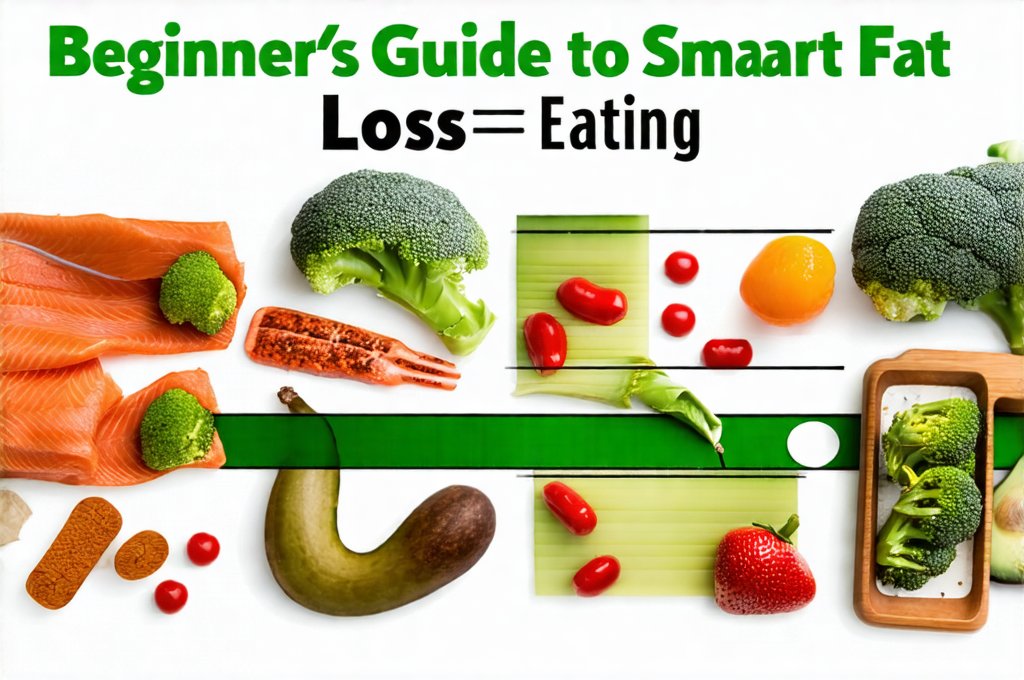Fat loss is often approached with restrictive diets and grueling exercise regimes, leading to frustration and unsustainable results. The truth is, successful and lasting fat loss isn’t about deprivation; it’s about making informed choices that nourish your body while creating a manageable caloric deficit. It’s about understanding how food impacts your metabolism, hormone balance, and overall well-being – not just focusing on numbers on the scale. This guide aims to empower you with the knowledge to navigate this process effectively, moving beyond quick fixes and towards a healthier, more sustainable lifestyle centered around smart eating habits.
Many people fall into the trap of believing fat loss is purely about willpower and cutting calories drastically. While caloric deficit is essential, it’s only one piece of the puzzle. The quality of those calories matters immensely. Focusing on nutrient-dense foods that promote satiety – feeling full and satisfied after eating – is far more effective (and enjoyable!) than restrictive dieting. We’ll explore how to build meals that support your goals without leaving you constantly hungry or craving unhealthy options, emphasizing long-term habits over short-term restrictions. This isn’t about a diet; it’s about a lifestyle shift towards mindful and nourishing food choices.
Understanding Macronutrients & Caloric Deficit
Macronutrients – carbohydrates, proteins, and fats – are the building blocks of our diet. Each plays a vital role in body function, and understanding their impact is crucial for smart fat loss. Carbohydrates provide energy, protein supports muscle repair and growth, and fats are essential for hormone production and nutrient absorption. A balanced approach to macronutrients isn’t about eliminating any one group (unless medically necessary) but rather adjusting intake based on your individual needs and activity levels. Prioritizing whole, unprocessed sources within each category is key.
Creating a caloric deficit means consistently consuming fewer calories than you burn. This forces the body to tap into stored fat for energy. However, drastic calorie restriction can backfire, leading to muscle loss, metabolic slowdown, and increased cravings. A moderate deficit – typically 500-750 calories per day below your maintenance level – is generally recommended for sustainable weight loss. It’s important to calculate your individual maintenance caloric needs based on factors like age, gender, activity level, and body composition. There are many online calculators available as a starting point, but consulting with a registered dietitian or nutritionist can provide more personalized guidance.
Remember that consistency is far more valuable than perfection. Occasional indulgences won’t derail your progress if you consistently make healthy choices the majority of the time. Focus on building habits around nourishing foods and mindful eating rather than obsessing over every calorie. Learning to listen to your body’s hunger and fullness cues is also paramount – eating when genuinely hungry and stopping when comfortably satisfied, not stuffed.
Protein Power: The Satiety Superstar
Protein is arguably the most important macronutrient for fat loss due to its unique properties. – It’s highly satiating, meaning it keeps you feeling fuller for longer, reducing cravings and overeating. – It requires more energy to digest than carbohydrates or fats (a process called thermogenesis). – Crucially, protein helps preserve lean muscle mass during a caloric deficit. Losing muscle is counterproductive as muscle burns calories even at rest.
Aim for approximately 0.8-1 gram of protein per pound of body weight, adjusting based on your activity level. Excellent sources include: – Lean meats (chicken breast, turkey, fish) – Eggs – Greek yogurt – Lentils and beans – Tofu and tempeh Incorporating a source of protein into every meal helps stabilize blood sugar levels, preventing energy crashes and promoting sustained energy throughout the day.
The Role of Healthy Fats
Despite often being demonized, healthy fats are essential for overall health and can even aid in fat loss. They play a crucial role in hormone production (including hormones that regulate metabolism), nutrient absorption, and cell function. Furthermore, similar to protein, fats contribute to satiety, helping you feel fuller after meals.
However, not all fats are created equal. – Focus on unsaturated fats – monounsaturated and polyunsaturated – found in sources like avocados, nuts, seeds, olive oil, and fatty fish (salmon, mackerel). – Limit saturated and trans fats, which can negatively impact health. Avoid processed foods containing hydrogenated oils. Including a moderate amount of healthy fats in your diet not only supports your overall well-being but also makes it easier to adhere to your fat loss goals by keeping you satisfied and energized.
Carbohydrate Choices: Quality over Quantity
Carbohydrates often receive the most negative attention when discussing weight loss, but they are a vital source of energy. The key is choosing complex carbohydrates over simple sugars and refined grains. Complex carbs – found in whole grains, fruits, vegetables, and legumes – are digested more slowly, providing sustained energy and preventing blood sugar spikes. Simple sugars (found in sugary drinks, candy, and processed foods) offer little nutritional value and can lead to cravings and energy crashes.
Prioritize fiber-rich carbohydrates as they further enhance satiety and promote digestive health. Experiment with different carbohydrate sources to find what works best for you. Some people thrive on higher carb intakes while others prefer lower carb approaches. The optimal amount varies depending on individual needs and preferences. Remember that context is crucial; a small serving of fruit after a workout can be beneficial, whereas excessive amounts of refined sugar should be avoided.




